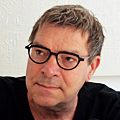Componist: Oscar van Dillen
Music from Oscar van Dillen’s major work: the Elements.
Compositions varying from half an hour to two hours in duration each.
In sequence a selection of 3 minutes per work in the following order:
00:00-03:00 Elements 1: Hydrogen – Deuterium – Tritium.
03:00-06:00 Elements 118: Oganesson.
06:00-09:00 Elements 2: Helium.
09:00-12:00 Elements 8: Oxygen – Ozone. (section from Oxygen part)
12:00-15:00 Elements 7: Azote. (aka Nitrogen)
15:00-18:00 Elements 6: Carbon. (section from Diamond part)
18:00-21:00 Elements 14: Silicon.
21:00-24:00 Elements 15: Phosphorus. (section from White Phosphorus part)
24:00-27:00 Elements 5: Boron.
27:00-30:00 Elements 13: Aluminium.
30:00-33:00 Elements 31: Gallium.
33:00-36:00 Elements 49: Indium.
36:00-39:00 Elements 81: Thallium.
39:00-42:00 Elements 4: Beryllium.
42:00-45:00 Elements 12: Magnesium.
45:00-48:00 Elements 20: Calcium.
48:00-51:00 Elements 38: Strontium.
51:00-54:00 Elements 56: Barium.
54:00-57:00 Elements 88: Radium.
57:00-59:59 Elements 3: Lithium.
On the work The Elements:
“The new BIG STORIES are all told by science, their scope is vast, and their telling has only begun relatively recently. We are daily getting updates on answers to all the ancient basic questions of life that inspired human art, cultures, and religions for millennia, and we are getting verifiable answers this time. Most important is perhaps that we are also facing completely new questions.
It is high time the old myths and beliefs are abandoned and replaced by contemporary, that is to say: scientific sources of information, imagination, and inspiration. The vast field of modern science is far more complex, has a verifiable and direct relation to reality, and it offers a far greater abundance of possible stories and references for artists in all disciplines than any older belief or myth system, however poetic, could ever come up with.
In our times we need new and innovative music in all genres, whether electronically or no; let these leave behind the stories of our alleged past and use such new narrative sources as our present times offer for reference and inspiration.”
–Oscar van Dillen
Full information on the composer, and on the works above, including cd booklets, can be found at:
https://www.oij-records.com/
On Oscar van Dillen:
Oscar Ignatius Joannes van Dillen (‘s-Hertogenbosch 1958) is composer and performer of music, professor of music at Codarts University for the Arts in Rotterdam, as well as visual artist. A polyglot and an erudite world citizen, he is also one of the pioneers from the early years of Wikipedia, having been founding president of Wikimedia Nederland and serving as a trustee of the Wikimedia Foundation. Van Dillen has studied a wide variety of musical traditions with many renowned teachers. His music education having started at the age of 7, and performing both classical and rock music in his youth, van Dillen first studied North-Indian classical music (sitar, tabla, vocal) with Jamaluddin Bhartiya at the Tritantri School in Amsterdam and bansuri with Gurbachan Singh Sachdev at the Bansuri School of Music in Berkeley, California. Next, he studied classical and jazz flute at the Sweelinck Conservatory in Amsterdam. He took composition lessons from Misha Mengelberg. As a flutist, he was taught by Lens Derogée and Dieks Visser, and followed masterclasses from Pierre-Yves Artaud, Geoffrey Gilbert and Barthold Kuijken.
After his following postgraduate studies of medieval and Renaissance music with Paul Van Nevel in Leuven (Belgium), he studied classical and contemporary composition with, among others, Dick Raaymakers, Diderik Wagenaar and Gilius van Bergeijk at the Koninklijk Conservatory in The Hague, with Klaas de Vries, Peter-Jan Wagemans and René Uijlenhoet at the Rotterdam Conservatory and with Manfred Trojahn at the Robert Schumann College in Düsseldorf, where he also received lessons in conducting from Lutz Herbig. As a composer he furthermore followed masterclasses from, among others, Isang Yun, George Crumb, Jan van Vlijmen, Marek Stachowski, Zbigniew Bojarski and Gerard Brophy.
A founding member of the Rotterdam School of composers and the author of its manifesto, he currently works as professor of music at the Codarts University of the Arts Rotterdam since 1997, teaching composing, arranging, world music composition, music history and music theory in the Jazz-, the Pop-, the World music, the Classical music and the Music Education Academies of Codarts.
Oscar van Dillen is the inventor of original world music composition, combining strictly composed with improvised classical and folk traditions, and their techniques and mentalities for creating music: a new and contemporary form of art music. He is also founder, composer, and artistic director of the Olduvai Ensemble for which he especially creates original world music compositions.
Van Dillen is a member of Nieuw Geneco and the Dutch-Flemish Society for Music Theory. As of 2020 his scores are published by Donemus. He collaborates with Donemus in publishing his recordings on OIJ Records.
Next to his fulltime work as composer, musician and pedagogue, van Dillen is also a visual artist. As composer, he has been a regular member of various jurys, among which the yearly composition prize juries in the Val Tidone Festival Competitions, since 2013.









